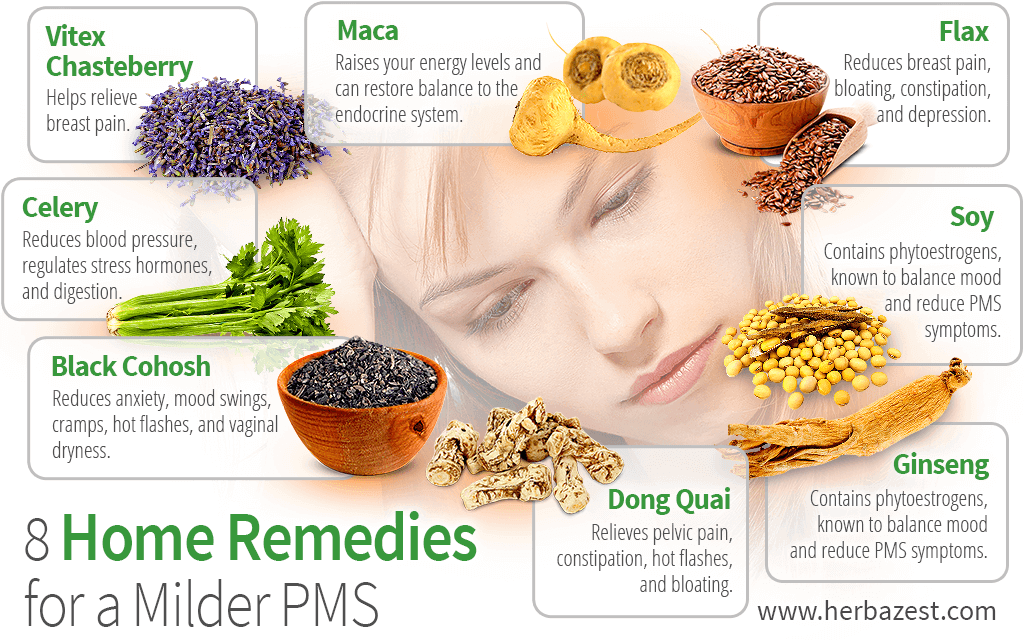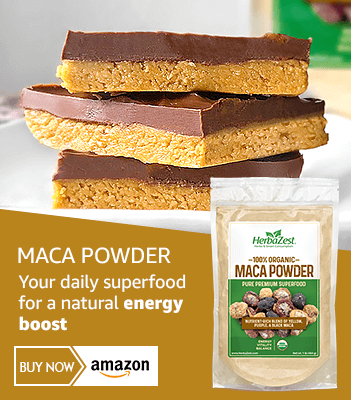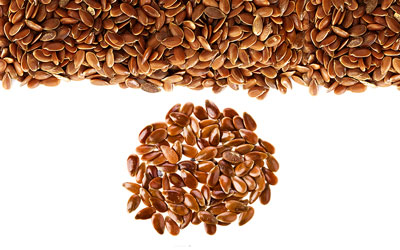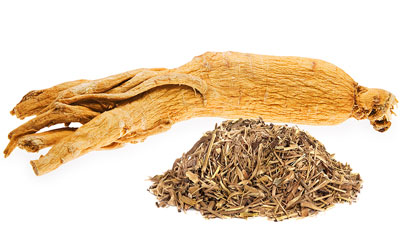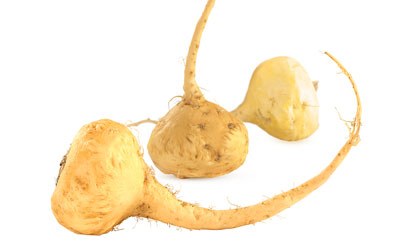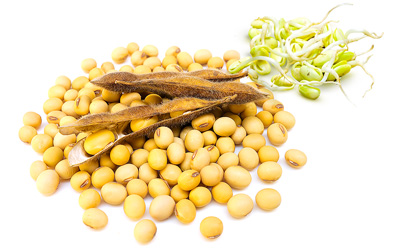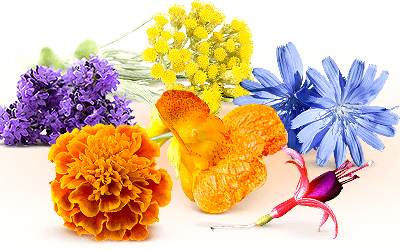While premenstrual syndrome (PMS) is extremely common among women, the extent of its effects on their physical and emotional well-being varies widely.
Exercising during PMS can dramatically decrease mood swings, improve your mindset, and relieve pain.
Symptoms can start up to two weeks before the beginning of a period, including mood swings, fatigue, cramps, trouble sleeping, and breast pain. While for some women they are manageable, others experience severe and debilitating discomforts. Luckily, the following herbs have been used since ancient times to relieve PMS symptoms and promote menstrual health.
1. Chasteberry (Vitex agnus-castus)
This shrub, found in the foothills of Asia and the coast of Mediterranean Sea, has been used for centuries for its varied medicinal properties, especially those related sexual health and hormonal balance. Chasteberry is believed to regulate the body's levels of prolactin, a hormone whose increased levels are often seen in women with PMS.
Chasteberry, also known as Vitex chasteberry, or just Vitex, may also significantly improve cyclic breast pain, known as mastalgia, which is one of the most common symptoms of PMS.
2. Maca (Lepidium meyenii)
Maca is great for hormonal imbalance typical to PMS because its alkaloids can both restore balance to the endocrine system and raise your energy levels. As a result, maca consumption can effectively reduce mood swings, relieve headaches, lower the incidence of acne flareups, boost libido, and solve many other minor ailments related to PMS.
3. Flax (Linum usitatissimum)
Both flaxseed and flax oil are great for female health. Their high phytoestrogen content can help regulate the hormonal processes that occur around menstruation, while their omega-3 fatty acids will help optimize brain functions, such as concentration, allowing the mind to function at its best. Flax can also help reduce breast pain, bloating, constipation, and depression before and during menstruation.
4. Celery (Apium graveolens)
Celery has been found to slightly reduce blood pressure and stress hormones levels. It also has a high fiber content, which helps regulate digestion and prevent discomforts during periods. In addition, it can effectively alleviate stress, which tends to build up right before your periods, promoting a feeling of ease and comfort.
5. Soy (Glycine max)
Soy is another herb that is dense in phytoestrogens, which are known to balance mood and other PMS symptoms. These isoflavones can be found in soy supplements and soy-based products, like tofu, tempeh, miso, and soy milk. Soy's availability and recognition has increased throughout the years as its numerous benefits continue being studied.
6. Black Cohosh (Actaea racemosa)
Black cohosh has been used to treat "female maladies" for centuries by Native Americans. Not only can it reduce PMS symptoms, like anxiety, irritability, mood swings, and cramps, but it can also alleviate menopause symptoms in middle-aged women. These include hot flashes, night sweats, and vaginal dryness, among others.
7. Dong Quai (Angelica sinensis)
Dong quai, an Japanese root, is believed to act as a blood purifier and has been used for millennia for its ability to soothe symptoms of menopause and PMS, such as cramps, constipation, hot flashes, and bloating. These impressive properties are accredited to its high phytoestrogen content.
8. Ginseng (Panax ginseng)
Ginseng's active compounds, called ginsenosides, are believed to improve thinking, boosting memory, and lifting mood. Some studies have also found potential benefits of using ginseng for relieving stress and treating depression and anxiety.1
These eight herbs can be easily found online and at your local specialty store. Make sure to always purchase pure, high-quality products to ensure their safety and effectiveness.
Sources
- National Center for Complementary and Alternative Medicine, Soy
- National Institutes of Health, Flaxseed
- NYU Langone Medical Center, Chasteberry | Maca | Flax
- University of Maryland Medical Center, Black cohosh
Footnotes:
- Journal of Ginseng Research. (2017). Effects of ginseng on stress-related depression, anxiety, and the hypothalamic pituitary-adrenal axis. Retrieved February 26, 2021 from https://www.ncbi.nlm.nih.gov/pmc/articles/PMC5628357/


